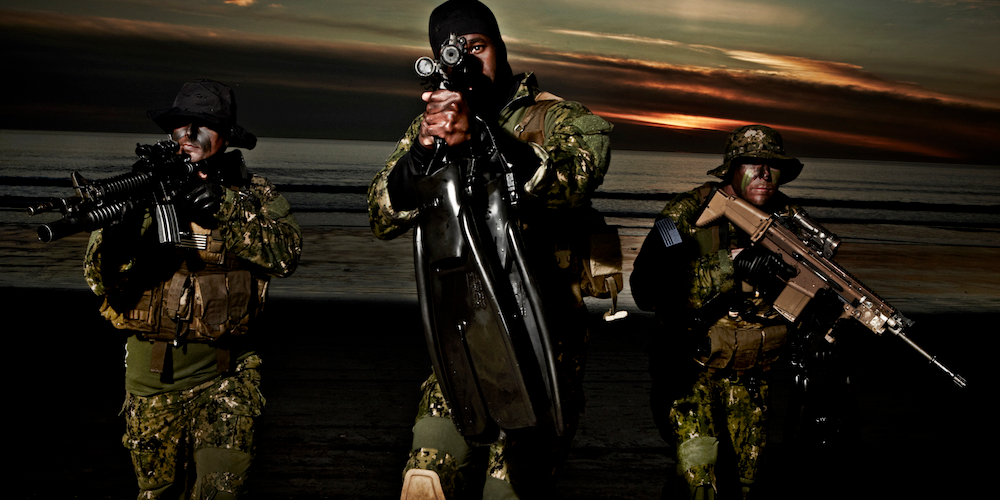- Naval Special Warfare Command leader Rear Adm. Collin Green has given commanders until August 7 to identify problems in their unit and propose solutions for out-of-control SEAL teams.
- “We have a problem,” Green said in a letter to commanders, according to CNN.
- SEALs and SEAL platoons have been involved in several serious, high-profile scandals in the past year, involving drug use, sexual assault, and murder.
- Visit Business Insider’s home page for more stories.
Navy Special Warfare Rear Adm. Collin Green told his unit explicitly, “We have a problem,” in a letter obtained by obtained by CNN.
“I don’t know yet if we have a culture problem. I do know that we have a good order and discipline problem that must be addressed immediately,” Green said in the letter, giving SEAL commanders until August 7 to find a path forward in the wake of multiple recent scandals.
In the past month alone, one former SEAL received a 60-year sentence for sexually abusing a child, on top of a previous 27-year sentence for manufacturing child pornography, Task & Purpose reported Wednesday. And a SEAL Team 7 platoon was sent home from deployment in Iraq over its abuse of alcohol and allegations that one member raped a woman service member assigned to the unit, a senior Navy official told The New York Times.
A member of SEAL Team 6, the legendary group that executed the raid that killed Osama bin Laden, was also charged with making up false identities to solicit nude photos, The Virginian-Pilot reported, and a Navy investigation found that members of SEAL Team 10 were using cocaine and cheating on drug tests last year.
Two SEALs were charged in the 2017 murder of Army Green Beret Staff Sgt. Logan Melgar while deployed in Niger. One was convicted in June for his role in the death and is under investigation for allegedly hitting on Melgar's wife after he was charged with her husband's murder.
The spotlight has been on the elite community in recent months, partly due to the high-profile case of SEAL Chief Edward Gallagher, who was accused by his teammates of killing a captured Iraqi. Gallagher was acquitted of a murder charge but convicted of taking an inappropriate photo with the corpse of the combatant.
Vice Adm. Michael Gilday, nominee to be the next chief of naval operations, the Navy's top uniformed position, has expressed concern about the special-operations community, saying he would "quickly and firmly" deal with the scandals rocking the SEALs.
Special-operations platoons have been on almost constant deployment of the past two decades, playing an increasingly vital role in US combat operations worldwide. But the physical demands and psychological stress of their work might contribute to behavioral and mental-health issues.
The most recent scandals come after the Pentagon conducted a review of special operations forces' ethics and professionalism programs at the behest of Congress. That report found no issues with the ethics and professionalism training those forces received, according to Task & Purpose.
INSIDER reached out to Naval Special Warfare Command, Special Operations Command, and the Pentagon for comment, but none responded by publication time.

